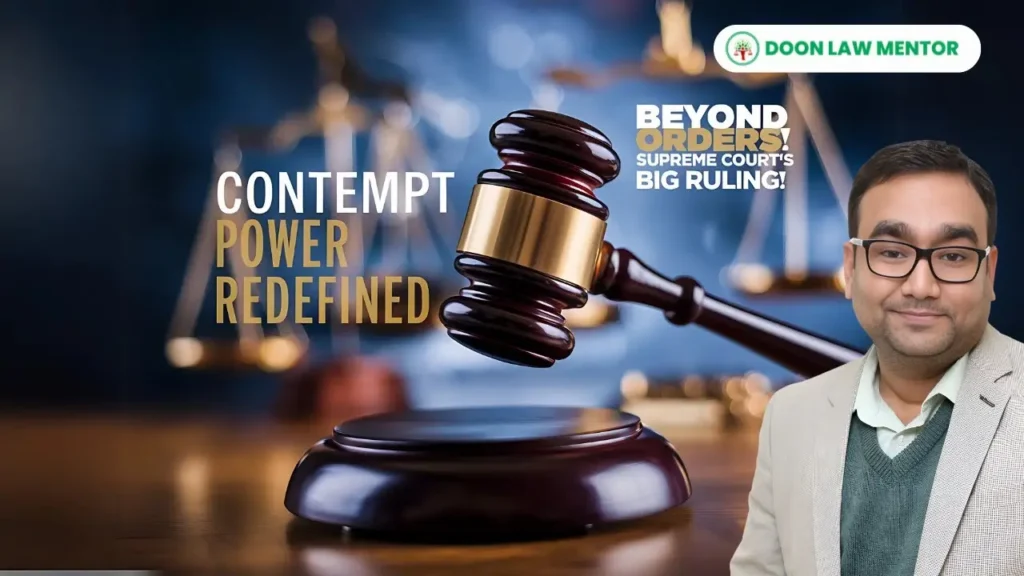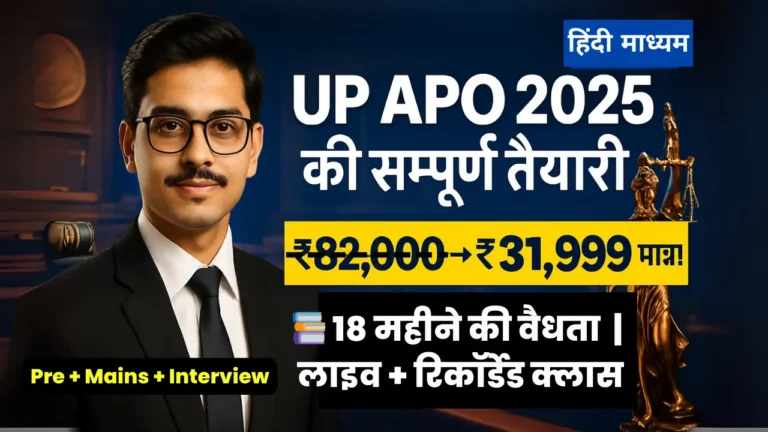Introduction:
Supreme Court’s landmark judgment expanding contempt of court jurisdiction to acts frustrating judicial processes. The ruling in Celir LLP v. Ms. Sumati Prasad Bafna redefines the scope of contempt of court, ensuring respect for judicial authority beyond express orders
Case Spotlight: Celir LLP v. Ms. Sumati Prasad Bafna & Others (2024 SC)
In a landmark ruling, the Supreme Court of India reinforced its authority by expanding the scope of contempt of court jurisdiction beyond the violation of express orders. The judgment highlights that any deliberate action intended to frustrate judicial proceedings or bypass an eventual judgment can also constitute contempt of court. This decision is a significant step in ensuring judicial efficacy and preserving the rule of law.
Understanding Contempt Jurisdiction
Contempt of court is a powerful tool available to the judiciary to enforce compliance with its directives and maintain its authority. It ensures that judicial proceedings are respected, decisions are implemented, and the rule of law prevails.
Contempt is broadly categorized into:
- Civil Contempt of court: Disobedience of court orders.
- Criminal Contempt of court: Actions that scandalize or lower the authority of the court.
In the Celir LLP case, the Supreme Court focused on a nuanced interpretation of contempt, emphasizing actions aimed at undermining judicial processes, even in the absence of explicit orders.
Case Overview: Celir LLP v. Ms. Sumati Prasad Bafna & Others
Background
The case arose when Celir LLP, an auction purchaser, filed a contempt petition against respondents, including a borrower, for obstructing the implementation of a Supreme Court judgment. The judgment had set aside a High Court ruling allowing the borrower to redeem the mortgage and directed the bank to issue a sale certificate to the auction purchaser.
Alleged Contemptuous Actions
During the pendency of the Supreme Court proceedings, the borrower transferred the mortgaged property to a third party. This action, claimed Celir LLP, was intended to:
- Frustrate the Supreme Court’s eventual decision.
- Create hurdles in implementing the judgment.
The borrower argued that the transfer took place before the Court’s final order and therefore did not amount to contempt.
Key Observations by the Supreme Court
1. Expansive Contempt Jurisdiction
The Supreme Court emphasized that contempt of court jurisdiction is not restricted to violations of express prohibitory orders. The court held:
“Even in the absence of such specific mandates, the deliberate conduct of parties aimed at frustrating court proceedings or circumventing its eventual decision may amount to contempt.”
This interpretation ensures that litigants cannot bypass judicial outcomes through procedural loopholes or preemptive actions.
2. Preserving the Integrity of Judicial Processes
The judgment highlighted that contempt extends to actions undermining the judicial process’s spirit, not just its letter. It observed:
“The authority of courts must be respected not only in the letter of their orders but also in the broader spirit of the proceedings before them.”
This ruling affirms the judiciary’s role in safeguarding its authority against indirect or preemptive subversions.
3. Dismissing Procedural Excuses
The Court rejected the argument that transferring the property before the judgment did not constitute contempt. It held:
“Attempts to sidestep the court’s jurisdiction or manipulate the course of litigation through dishonest or obstructive conduct … would amount to contempt.”
The borrower’s intent to obstruct the judgment’s implementation was sufficient to invoke contempt jurisdiction.
4. Balanced Approach to Enforcement of Contempt of Court Jurisdiction
Despite finding the respondents’ actions contemptuous, the Supreme Court chose not to penalize them immediately. Instead, the Court:
- Declared the subsequent transfer of property invalid.
- Allowed the respondents an opportunity to comply with the judgment.
This balanced approach reflects judicial restraint while preserving the judiciary’s authority.
Legal Implications
The judgment in Celir LLP v. Ms. Sumati Prasad Bafna has far-reaching implications:
1. Broader Contempt Powers
The Court’s expansive view of contempt ensures that:
- Litigants cannot exploit technicalities to evade justice.
- Judicial processes are respected in both letter and spirit.
2. Enhanced Judicial Efficacy
By addressing attempts to frustrate judicial outcomes, the ruling strengthens the judiciary’s ability to deliver justice effectively.
3. Deterrent Against Obstructive Conduct
The judgment sends a clear message that:
- Contempt includes indirect actions bypassing judicial authority.
- Preemptive actions during proceedings will face legal consequences.
FAQs on Contempt of Court
1. What constitutes contempt of court?
Contempt of court refers to actions that disrespect or disobey the authority of the judiciary. It includes direct violations of orders and indirect acts undermining judicial processes.
2. What was the issue in the Celir LLP case?
The case involved a borrower transferring a mortgaged property to a third party during Supreme Court proceedings, allegedly to obstruct the judgment’s implementation.
3. Does contempt require an explicit prohibitory order?
No. The Supreme Court clarified that actions frustrating judicial proceedings or bypassing eventual decisions, even without explicit orders, could constitute contempt.
4. How does this judgment impact judicial authority?
The ruling strengthens judicial authority by addressing both direct violations and indirect attempts to undermine court processes.
5. What was the Supreme Court’s remedy in this case?
The Court declared the property transfer invalid and provided respondents an opportunity to comply with its judgment.
6. How does this judgment affect litigants?
Litigants must respect not only explicit orders but also the judicial process’s broader integrity. Any attempt to sidestep outcomes can lead to contempt proceedings.
#Doonlawmentor #contemptofcourt #landmarkjudgement #SupremeCourt #ContemptOfCourt #JudiciaryExam #LegalInsights #IndianLaw #JudiciaryPrep #LawStudents #LegalEducation #JudicialProcess #CivilProcedureCode #RuleOfLaw #IndianJudiciary #APOExam #JudiciaryCoaching







